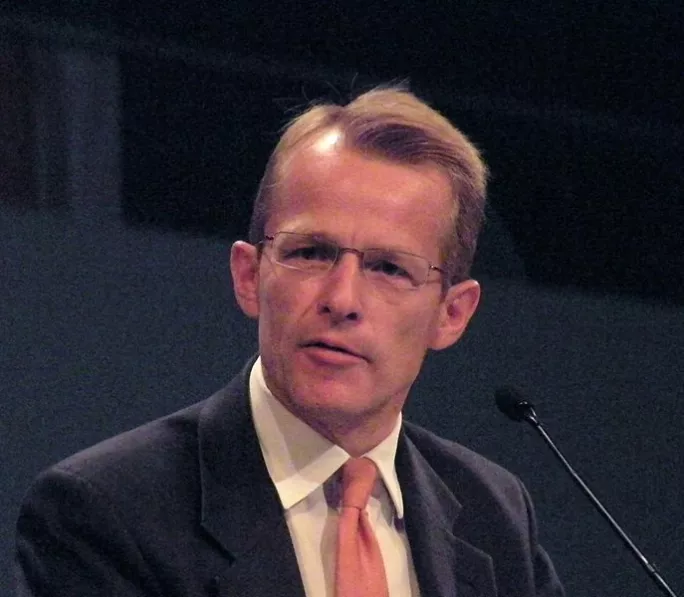David Laws: ‘Why I believe in universal free school meals’
David Laws, minister of state for schools, writes:
One of the greatest privileges of working in education - whether in government, in a classroom or, indeed, in a school canteen - is the chance to change children’s lives for the better.
That is why I was so proud that we have delivered the pupil premium to support poorer children. The latest primary school results show, for instance, that since it was introduced, the achievement gap between these pupils and their peers has narrowed by three percentage points in maths.
This is an encouraging step in the right direction.
Another such step is our introduction of free school meals. Pupils from pilots in Durham and Newham, which piloted the idea for all primary school children, were found to be two months ahead of their peers on average in English and maths.
Crucially, the greatest progress was made by poor children - advances not seen in Wolverhampton, the third pilot area, where free school meals were extended but not offered to everyone.
But the benefits go way beyond the classroom.
For a start, pupils in the pilot areas ate more healthily - a key consideration when 10 per cent of children starting primary school are obese, rising to 20 per cent by the time they leave.
Only one per cent of packed lunches are thought to meet food standards, compared to an estimated 99 per cent of primary school meals provided by local authorities. Yet we know that the biggest reason parents shun schools meals is the expense.
So universal free provision also helps ease financial pressures on families; saving those who pay for schools meals around £400 a year on average - a valuable boost at a time when money is so tight.
There will also be better work incentives for around 100,000 poor families with children. They will now continue to get free school meals even if they move into work or work more hours, whereas, previously, they would have lost their entitlement.
Offering free school meals to the youngest pupils also gives us best opportunity to have an impact; on lifelong eating habits, social skills and, ultimately, life chances. The later we leave it to intervene, the wider the attainment gap and the harder it gets to make a difference.
It’s for this reason that we decided to amend the Children and Families Bill to enshrine universal free provision for infant school pupils in law from this September, with the option to extend the policy in future.
This is only three months away now and I am keen to do everything I can to help schools step up their preparations and overcome any challenges.
Hence the significant support that we are providing to schools - Michael Gove and I wrote to school heads about this earlier this year.
This amounts to over £1 billion available over two years to help with delivery, including £150 million to improve kitchen and dining facilities. And in recognition of the particular challenges they face, smaller schools will be in line for £22.5 million of transitional funding in 2014-15 - at least £3,000 per school.
In addition, we have announced how revenue funding will be allocated. Following discussions with schools, caterers and local authorities, we have decided that it would be fairest to allocate schools a flat rate of £2.30 a meal, based on actual take-up by newly eligible pupils.
We are also providing schools with extra support through a national helpline run by the Children’s Food Trust - their help could extend to visits and one-to-one help where needed - advice from Magic Breakfast on setting up breakfast clubs and support from charities to drive up low take-up of school meals in 2,000 schools.
Furthermore, I would also like to reassure schools that they will receive pupil premium funding as usual. Funding allocations for 2014-15 will be based on School Census data collected this January.
In future years, the Department for Education will continue to draw on the information schools already provide on which pupils are in families on particular benefits to allocate the pupil premium and other funding related to deprivation.
But, above all, I want schools to be inspired and enthused by the experiences of schools in Durham and Newham. They rose to the challenge of delivering universal provision in a much shorter time than we currently have left and are already reaping the rewards.
I saw this for myself when I visited a school in Newham, where, thanks to strong leadership from the headteacher and support from staff and parents, hundreds of children are enjoying good quality free school meals that set them up to learn and thrive.
I’m committed to working with teachers, parents and others to do all we can to extend this fantastic provision to all schools and give many more children a great start in life.
Keep reading for just £1 per month
You've reached your limit of free articles this month. Subscribe for £1 per month for three months and get:
- Unlimited access to all Tes magazine content
- Exclusive subscriber-only stories
- Award-winning email newsletters




